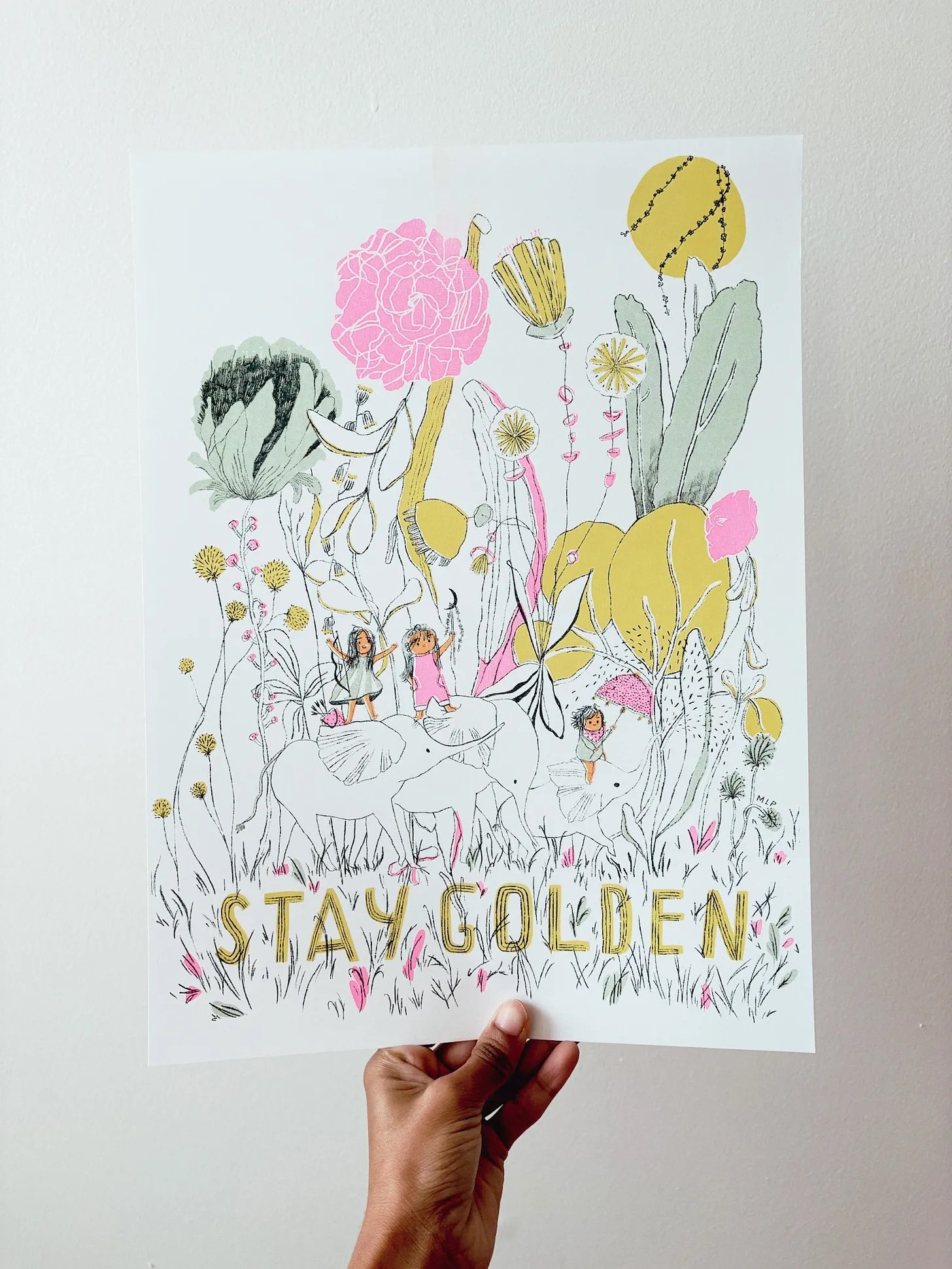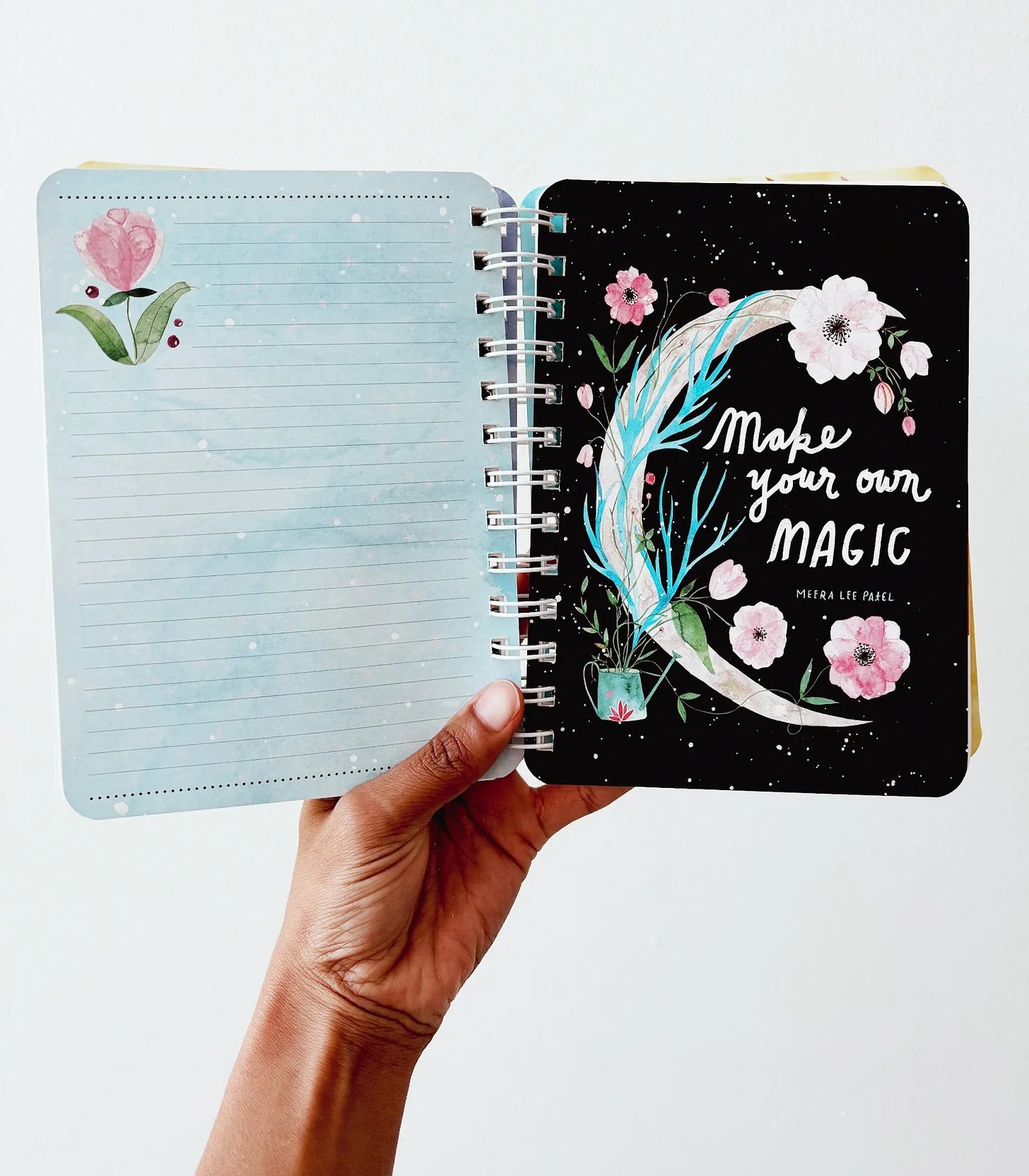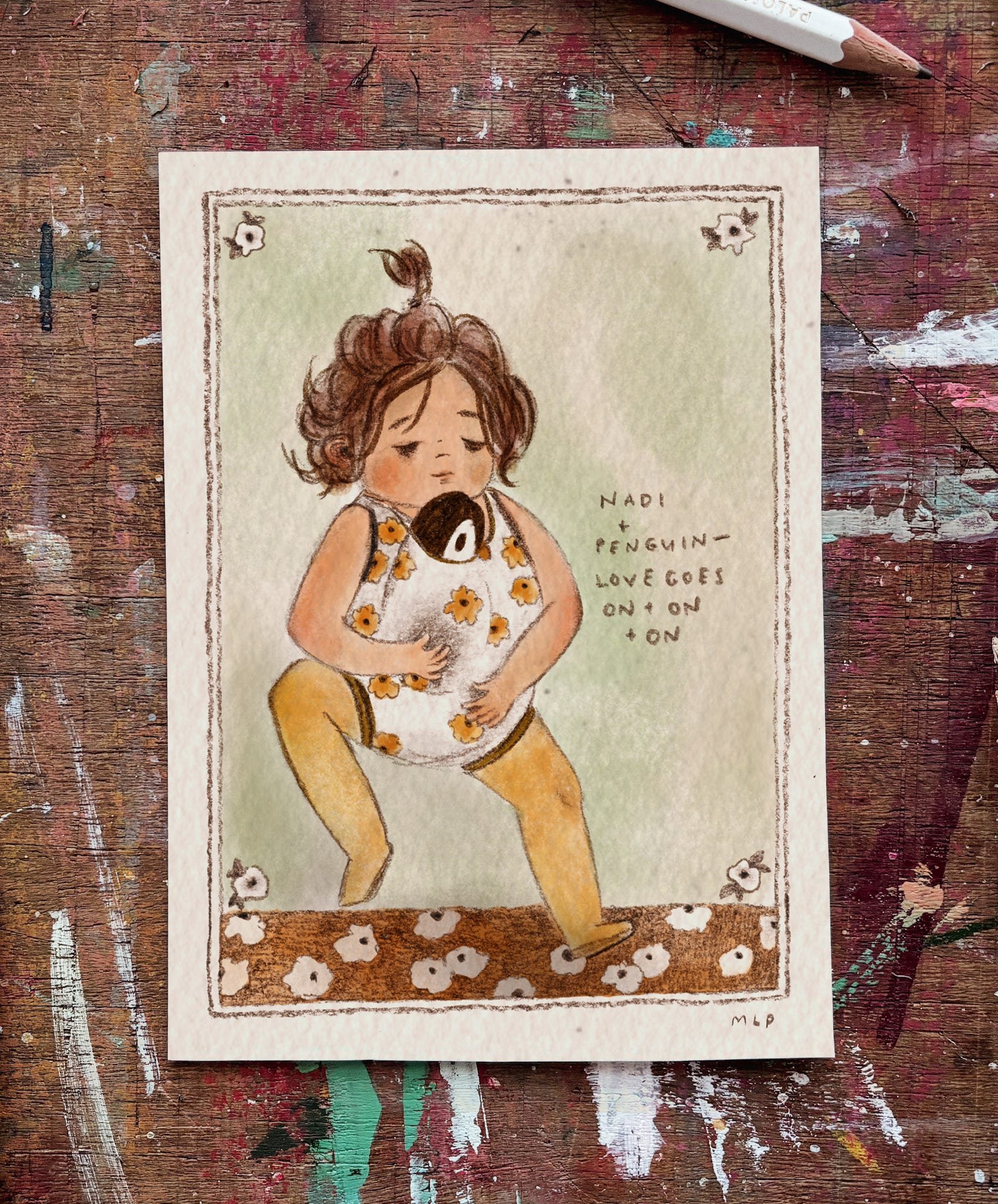Color testing for a risograph edition of Stay Golden (2024)
For local folks: next week I’ll be in conversation with Sacha Mardou to celebrate the launch of her graphic memoir Past Tense. I’m incredibly impressed with the amount of emotional and physical work this graphic novel has taken, and how smoothly Sacha takes us not only through her tumultuous upbringing, but through the complicated passageways of her mind. Come see us if you can.
A year from now, here are five things from this week that I'd like to remember:
MONDAY
Since the Penguin saga (Part 1 and Part 2), it’s been a tough couple of weeks for mothers and daughters. N is not even four but somehow she’s already fourteen, defiance coming off her like hot steam. I feel myself skulking back into my own teenaged self each time N strikes a match and hurls the flame directly at me; it’s my least favorite version of myself to be.
No is her new favorite word. It sprints out of her mouth like an outraged boxer, like someone who’s been outfought many times and will not allow themselves to come second any longer. No is followed by loyal companions it’s not and I’m not and I won’t. The words are followed by the tears—my god, so many tears—as if the salt water seeping out of her eyes is determined to make our house it’s new home. After the tears, it’s the screams, then the kicking and shrieking, and then finally, the entire bag of three-year-old bones crumples in the very spot where it was previously standing and goes silent.
Tantrums are tough on the body. I feel my frustration radiating with nowhere to go. I too want to win; I, too, refuse to come last—but my idea of winning means only that my oldest child doesn’t feel too misunderstood, too often, and that one day when she does, she’ll have the language to tell me, to my face, why. It’s not the first time parenthood has brought me to tears and nor will it be the last, so I dry my eyes and get back in the ring.
12 hours later, when it’s finally time to tuck into bed, thoroughly exhausted and all cried out, N tells me she’s afraid of falling asleep. Her dreams scare her. The shadows have teeth. I tell her our brains will believe anything we tell them, so we have to give them lots of joy. Lots of reasons to smile. What’s something that always makes you smile? I ask her.
“F,” she says and closes her eyes. In this moment, despite the hundreds of ways I am failing as her mother, I feel, in the name of sisterhood—that maybe I’m also doing something right.
TUESDAY
My 2025 Start Where You Are calendar
Working pastel into the painting (2 of 3)
My 2025 Life Blooms One Day at a Time weekly planner
A favorite spread from my 2025 weekly planner
My 2025 calendars and planners with Amber Lotus Publishing/Andrews McMeel are available!
I am so pleased to say that both of these items are filled with illustrations painted and written by me, and no one else. Valuing the practices and thoughts that have helped me along my way as much as I value someone else’s words has been a long time coming—but now it’s here, and I am glad.
These make wonderful gifts for yourself or a loved one—if you’re inclined, please support me by purchasing one (or a few) through Andrews McMeel, BuyOlympia, or Amazon.
WEDNESDAY
I started a new practice of listening to poetry while I draw. This week I’ve listened to Jericho Brown and Margaret Atwood. Ideally, I’d like to choose a prolific poet and listen to their entire body of work over the next several months as I work on illustrating Dear Library. If you have any recommendations, please leave them in the comments—especially if the audiobook is narrated by the poet.
I started two books: I am reading the My Father’s Dragon trilogy by Ruth Stiles Gannett and I am listening to Wandering Stars by Tommy Orange.
I want to memorize poetry—my memory is pretty shoddy so maybe this will be both interesting and exciting; I confirmed I am registered to vote; I started waking up before the sun again.
THURSDAY
Color study of N and Penguin (2024)
I received this beautiful copy of Ornithography by friend and illustrator Jessica Roux and the inside artwork is every bit as stunning as the cover. I’ve placed it near our front door so we can reference it while bird-watching from our windows, door, and porch. Jessica is also a gifted gardener and publishes The Garden People with artists Ginnie Hsu and Libby VanderPloeg.
FRIDAY
me and you be sisters.
we be the same.
me and you
coming from the same place.
me and you
be greasing our legs
touching up our edges.
me and you
be scared of rats
be stepping on roaches.
me and you
come running high down purdy street one time
and mama laugh and shake her head at
me and you.
me and you
got babies
got thirty-five
got black
let our hair go back
be loving ourselves
be loving ourselves
be sisters.
only where you sing
i poet.
—Sisters by Lucille Clifton
xx,
M




































































